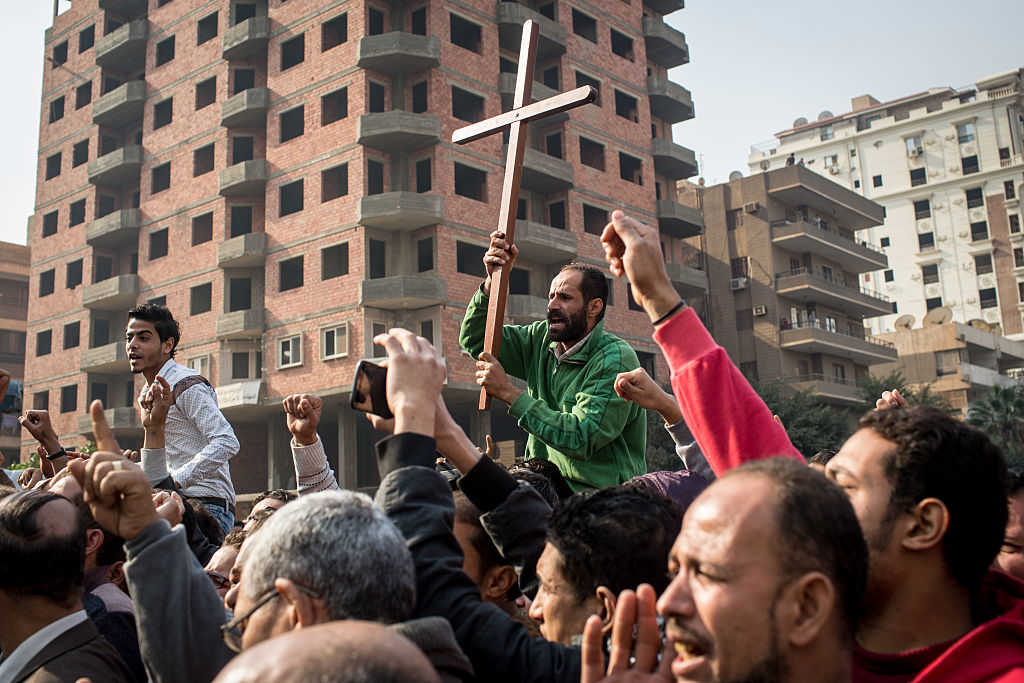For many of us, being persecuted for our faith will never be a serious consideration. Sure, we might get ridiculed for believing in something that many deem to non-existent, we might be shouted-down for our views on moral or sexual ethics, but few of us will have our lives put in jeopardy as a result of our devotion to Jesus. The same cannot be said for many Christ-followers living in Egypt, who are regularly risking their lives for the cause of God’s kingdom.
For 17-year-old Marqos and his family, persecution is a stark reality that has resulted in utter tragedy. His father, murdered my Islamic extremists, was a devout follower of Jesus, martyred for his faith.
“Before he was killed, we were a family of four living in El-Arish (a small city on Egypt’s Mediterranean coast)l: me, my sister, my mother and my father,” Marqos told Christian persecution charity Open Doors USA. “It wasn’t a bad place to live. We lived in peace with our Muslim neighbors. My father was a veterinarian, and had good relations with his Muslim colleagues and friends.”
Then, there was an influx of more radical Muslims, who wanted the expel all Christians from the local area.
“At some point, new people moved to the village,” added Fawziya, Marqos’ mother “They were Palestinian immigrants with a very strict view on Islam. That changed everything.”
The new residents began disseminating leaflets which warned the Christian community to leave the city or face execution. Many thought it was an intimidation tactic, but would not come to anything. They were wrong. At the beginning of 2017, they began slaying believers. Baghat, Marqos’ father, was one of the first victims.
“It was a Sunday, and my husband woke up early to go to church,” Fawziya says. “After that, he went to work at the veterinarian clinic of one of his Muslim friends.”
“He told me that two young masked men entered the pharmacy and dragged my father outside,” Marqos explained. “They told him to kneel in the street. They put two guns at my father’s head and told him to convert to Islam. But he shook his head. Then they shot him. When I heard he’d died, I couldn’t walk to the morgue.”
Marqos talked about his father with admiration and pride – he was clearly a devout man of God. “He wore it every day, also the day he died,” the young man recalled, holding up a cross necklace. “I was proud of my father, for standing by his faith until the last moment.”
The teenager said that his father’s staggering sacrifice and bravery in the face of grave danger made him “curious” about the faith. “When my father was still alive, he woke up every morning at 5 am to study the Bible and pray,” he explained. “Apparently, that helped him become a strong believer. My father’s death for Christ has made me search for Jesus.”
Clearly, his father’s death had sparked something in Marqos, and led him notably closer to the Lord.
Fawziya said that she noticed an obvious change in her son’s behavior following the death of her husband.
“You know, Marqos used to be a difficult teenager. But after the murder, all of the sudden, I found him reading his Bible and praying. He started going to church often, studied harder,” she explained. “He really changed as a person. If he doesn’t understand a verse, he asks me about it. And we pray together.”
“This is what my husband and I have always prayed for together: that the Lord would touch our son’s heart and pull him closer to Him.”
Last year, Egypt saw a surge in violence against Christians. At Easter, two separate church bombings claimed the lives of 49 people. Then, in May, a further 29 were slaughtered when extremists opened fire on a minibus full of Coptic Christians who were traveling to a monastery.
“There is only a minority of violent extremists, but the culture in Egypt cherishes the perception that Christians are infidels,” Cairo-based Christian businessman “Michael Jones,” told the Guardian. He noted that the response of the Jesus-following community had been one of grace and forgiveness. “By forgiving our attackers, we’re not saying they should not be punished but retaliation and revenge is not our response,” he explained. “We don’t want to be part of a cycle of violence.”



